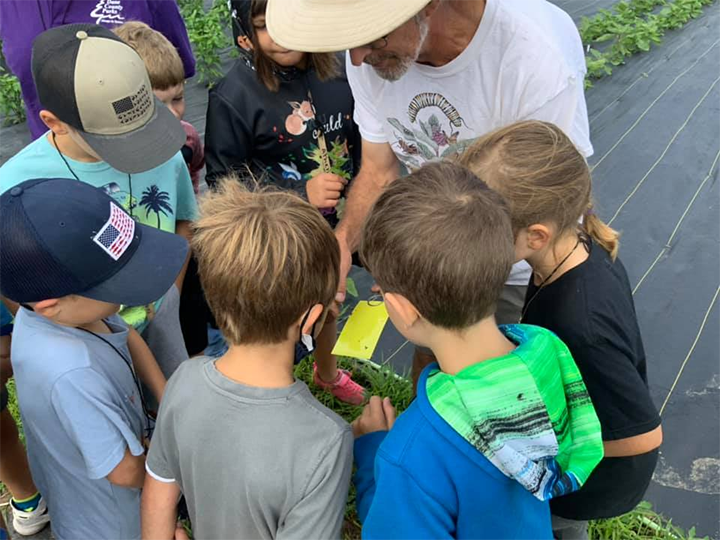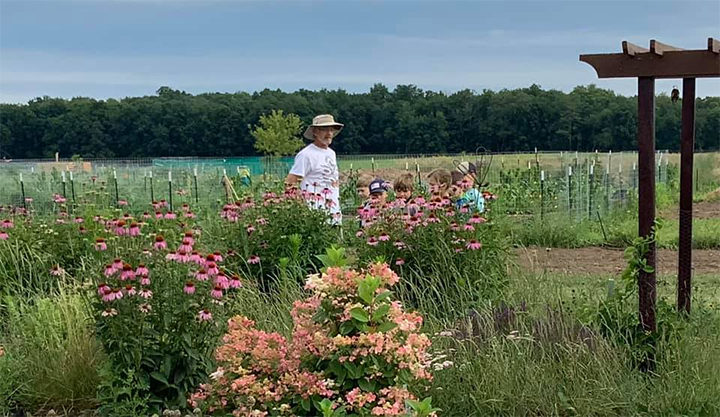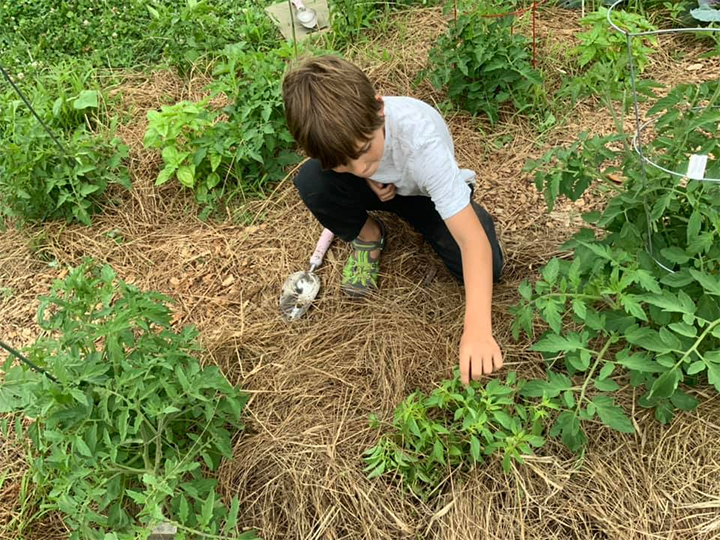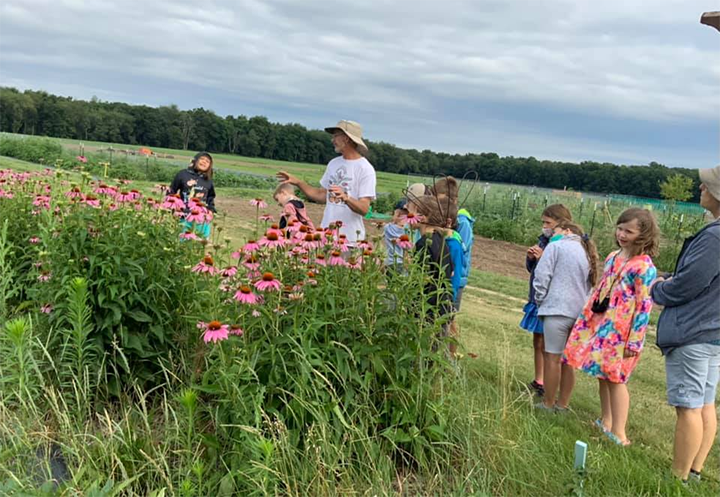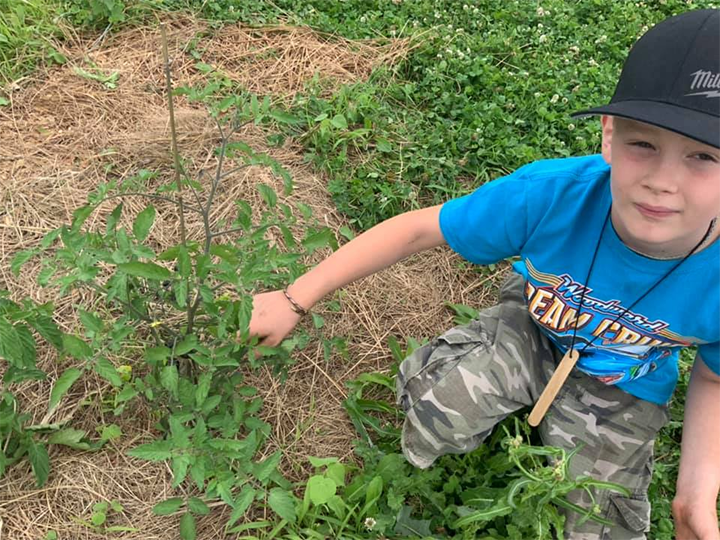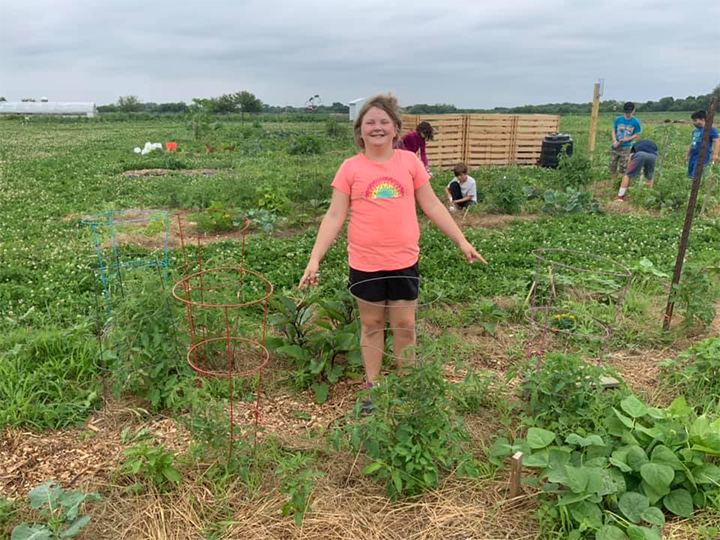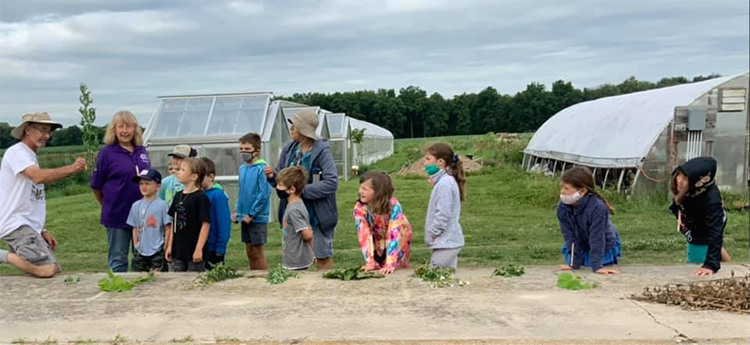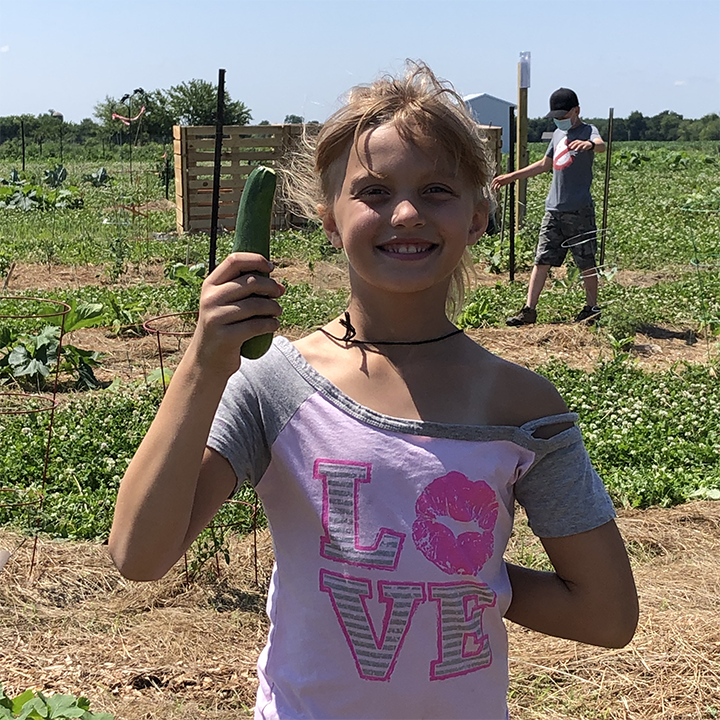Day 10
John Peck of Yellow Dog Flowers and Produce elaborated on how his CSA and market business uses sustainable practices. Munching by some insects makes the produce less desirable--who wants a flower that has lacy leaves? He focused on integrated pest management, including incorporating pollinator plants, hand removal of cabbage worms, trapping of Japanese Beetles, using unpleasant chemicals like Neem and fish oils to deter squash bugs. Fertilizer such as fish poop is sprayed on the plants. John laid out common weeds at Silverwood and emphasized the importance of removal before they go to seed. Plant diversity and crop rotation were two other strategies that he and his partner use.
The younger camp students also learned about ground squirrels, more commonly called chipmunks. The chipmunks have been devouring John’s tomatoes. Some growers have set live traps for them and some apply a homemade mixture of hot pepper spray.
The older kids researched various cover crops and planted a small demonstration plot of many varieties--winter rye, buckwheat, crimson and white clover, fava bean, oats, wheat, sweet peas, and a mix, to name a few. The benefits of cover crops to suppress weeds, prevent water and wind erosion, attract beneficial insects, and add nutrients to the soil were noted..
Proud gardeners--jalapenos, zucchini, cherry tomatoes, swiss chard, curly and leafy kale along with basil have been harvested! Waiting patiently for the larger tomatoes!
Summer School 2021 Navigation
- Summer 2021: Overview
- Day One: Student outcomes
- Day Two: Master Gardener/vermiculture
- Day Three: Agroecologist
- Day Four: Food Preservation
- Day Five: Farrier
- Day Six: Beekeepers
- Day Seven: Microbes/chickens
- Day Eight: Forrester/Monarchs
- Day Nine: Chickens/Food Print/Compost
- Day Ten: CSA/Market Grower
- Day Eleven: Rainy Day
- Day Twelve: Kayaking/Fishing
- Day Thirteen: Apples/Water Testing
- Day Fourteen: Mushrooms/Food from Harvest
- Day Fifteen: Presentations/Assessments
- Garden to Harvest@Silverwood
Welcome to Silverwood Park
Park Hours: 5:00 a.m. – 10:00 p.m.
Silverwood News
- Candlelight Hike Jan 25th January 14, 2025
- Candlelight Hike Postponed January 14, 2025
- Candlelight Hike Postponed January 14, 2025
- Grower Profile: LuckySpud July 15, 2024
- Mushroom Inoculation Workshop April 8, 2024

